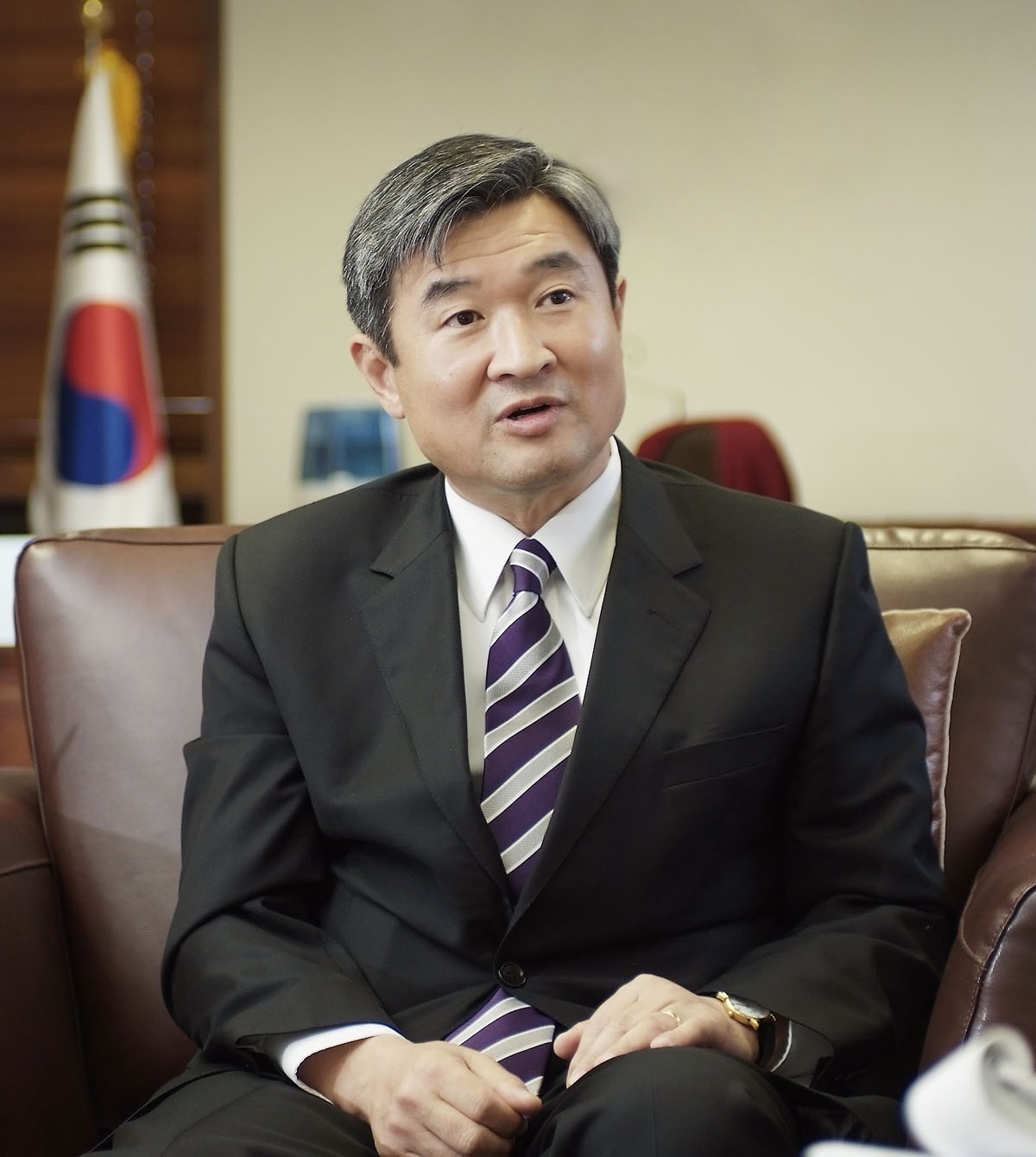Inter-Korean relations under the Moon Jae-in administration were never going to work, as they were built on a misguided belief, as worded by Moon in 2018, that North Korea would dismantle its nuclear arsenal for peace, said Cho Tae-yong, a former South Korean nuclear envoy and deputy national security adviser.
“The nuclear talks were headed to a failure from the inception,” Cho said, citing former US national security adviser John Bolton, who in his forthcoming memoir described the now-fragile diplomatic advances as part of a “fandango” South Korea created.
The first-term lawmaker from the opposition United Future Party slammed a string of pro-engagement policies that have been rolled out by Moon, who once said the South should take the driver’s seat on matters involving the Korean Peninsula, championing a peace-driven economy.
“That wouldn’t come to life, unless North Korea goes nuclear free. Pyongyang hasn’t moved an inch over the last two years on its promise to denuclearize,” Cho said. “As long as leader Kim (Jong-un) refuses to abandon the nuclear arsenal, Washington-Pyongyang relations and inter-Korean ties would not see progress.”
Cho, who sits on the National Assembly’s Foreign Affairs and Unification Committee, was critical of Moon’s proposal that the two Koreas start expanding on what they could do themselves, beginning with inter-Korean economic projects, for example.
“No inter-Korean economic project is doable due to UN sanctions,” Cho said. “I’m not against the idea that the two Koreas should put into practice projects they can expand on their own. I’m against the idea that those projects all have to involve economic exchange.”
Cho referred to the inter-Korean reunions of families separated by the 1950-53 Korean War.
“Nearly 2,000 people in the South met their families when Lee Myung-bak was president, and again another group similar in size met theirs when the succeeding Park Geun-hye came to the office,” Cho said.
“About 833 South Koreans, not even half the figure last time, met their families in the North after Moon was voted to power. Don’t get fixated on ‘not doables.’ Find something ‘doable.’”
Cho, when asked about the flurry of aggression from the North, condemned Seoul’s unwavering commitment to honoring its agreements with Pyongyang, one of which was the contentious military pact Moon and Kim signed in September 2018 at the third inter-Korean summit.
“Pyongyang’s long range artillery, ready to open fire any minute on Seoul and the adjoining areas, is as much a threat to us as its nuclear weapons,” Cho said. “Our unmanned reconnaissance drones however have become obsolete because of the no-fly zones enforced by the military accord.”
Worse, the South could no longer carry on with firing drills on islands near the maritime border in the West Sea, undertaking its drills elsewhere instead, according to Cho. Amid the latest flare-up of tensions on the peninsula, the military has reportedly further suspended shooting drills there.
“We wouldn’t be seeing this ridiculous mix-up had the military had a say on what needed to be done while drafting the deal,” Cho said.
A former senior military officer with knowledge of the matter said the Foreign Ministry was in charge of closing the deal back then, with the military on the sidelines. He said a limited number of senior officials from the ministry were briefed during the negotiations.
“The pact isn’t two-way street. The North stands to lose little, while the South is forced to forsake plenty,” Cho said.
Cho concluded that the Moon government should renegotiate the deal to level the playing field.
The North continues to violate the deal -- by carrying out missile tests and firing at one of the South’s guard posts in the Demilitarized Zone, for example -- and finds fault with the South for its legitimate activities to beef up defense readiness, according to Cho.
Cho, describing the pact as a “surrender” to North Korea and a “reminder” of the misguided hope that Pyongyang would act in good faith, urged Moon to acknowledge the shortcomings of his North Korea policy and draw out fresh strategies.
“Now is the watershed moment to make the call,” Cho said.
By Choi Si-young (
siyoungchoi@heraldcorp.com)







![[Today’s K-pop] Blackpink’s Jennie, Lisa invited to Coachella as solo acts](http://res.heraldm.com/phpwas/restmb_idxmake.php?idx=644&simg=/content/image/2024/11/21/20241121050099_0.jpg)
